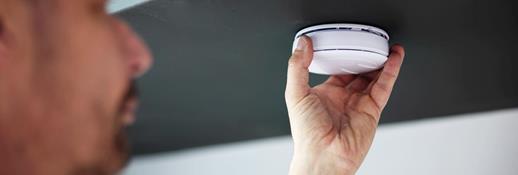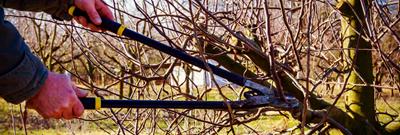
In 2022, the fire and rescue services were called out to 152,608 fires. [1]
From electrics to cooking, house fires can start in many ways. We’ve outlined the most common causes of house fires along with some tips to help you stay safe at home.
Easy as hack
Fire safety begins with fitting fire alarms at home. Test them weekly to make sure they work and ensure they’re on all levels of your house.
At a glance
- 152,608 fires occurred in 2022
- From faulty electrics to careless smoking, house fires can begin in many ways
- Here are the main causes and the action you can take to stay safe
What are the common causes of house fires?
Cooking equipment
How many times have you had an accident in the kitchen? Whether it’s dropping something on the floor or cutting your finger, a lot can happen when you’re distracted.
Did you know that toasters are a common cause of house fires? Avoid a build-up of crumbs and debris by cleaning it regularly. [2]
If you overheat pots and pans, or if you’ve got any combustibles e.g. oven mitts, dish towels, paper towels near heat sources, a fire could quickly occur. Remember to never put water on an oil fire, and be aware that if oil is being used, fire could spread quicker.
Action:
Always be mindful of what’s going on in the kitchen and don’t get distracted. Keep a fire blanket or suitable fire extinguisher available to use in the event of a fire. If you’re cooking with hot oil, take extra care and don’t leave hot pans unattended.
Heating equipment
According to the London Fire Brigade, electrical heaters are a common cause of house fires. [3]
Fires could start if you place bedding, blankets or clothes on, or near heaters. Some heaters can also present a carbon monoxide risk which could be fatal by causing drowsiness, as it could prevent waking up in the event of a fire.
Action:
Do not use heaters to dry shoes or clothes and keep portable heaters at least one metre away from clothing or furniture. Make sure all heaters are kept in good working order and fit a carbon monoxide alarm in rooms with solid fuel, gas or paraffin heaters.
Electrical appliances
Many of us are guilty of leaving electrical appliances on for long times or overusing an extension cord, but this could quickly cause a house fire. Did you know emptying the fluff out of your tumble drier filter regularly can also help prevent fires?
If you’re leaving appliances on charge for too long or using old or dated appliances – which may not be up to standard when it comes to wattage usage, material quality and safety regulations – a fire could occur.
Action:
Don’t overload electrical sockets. Use one plug for one socket. Don’t leave the TV or other electrical appliances on standby as this could cause a fire. Ideally, try to switch it them off and unplug when not in use.
Christmas trees
We all love putting up a Christmas tree during the festive season, but you should know there comes a risk with it as well.
A dry Christmas tree is incredibly flammable. While an artificial trees made with vinyl or plastic needles could be safer, an electrical fire from a bad wire or an overloaded outlet is a risk.
Action:
If you’ve chosen a real tree, make sure it stays hydrated. When choosing trees, avoid any that may be too dry. And never leave Christmas tree lights plugged in when you’re not at home or are sleeping, no matter if the tree is natural or artificial.
Cigarettes
If you’re a smoker, or live with a smoker, you should be aware of the risk of fallen cigarettes/embers. If not put out properly, a cigarette could cause fire.
Action:
Always make sure cigarettes are discarded in ashtrays and fully extinguished (a cigarette butt can smoulder for hours).
Chemicals
If chemicals come into direct contact with an open flame or heat source or combine with oxygen to produce enough heat for ignition, a fire will occur. [4]
Many common household chemicals, including gas are highly flammable. These should be stored in their original containers and always sealed properly.
Action: Keep chemicals and petrol away from heat, electrical sources, furnaces, pilot lights and other chemicals with which they could cause flames, including grease. Also keep them out of arms reach if you have young children.
Electric scooters
Many people don’t realise that electric scooters can pose a fire hazard, especially during charging. Overcharging or using incompatible chargers or replacement batteries may lead to fires.
Action:
To stay safe, follow the instructions given by the scooter manufacturer when charging. Always use the chargers and batteries recommended for your scooter, don't overcharge, and make sure to charge the scooter in a place with good airflow.
Prevent house fires in other ways
There’s more you can do to prevent a house fire – the more action you take, the safer you’ll feel at home.
Fit a fire alarm – There are four main types of fire alarms. These include:
-
Ionization Smoke Alarms:
these alarms use ionization chambers and a small amount of radioactive material to detect smoke. They are best for detecting fast-burning, flaming fires with smaller smoke particles. -
Photoelectric Smoke Alarms:
Photoelectric alarms use light and a sensor to detect smoke. These are particularly effective at sensing slow-burning fires with larger smoke particles. -
Ionization and Photoelectric Combination Alarms:
These alarms combine both ionization and photoelectric technologies to provide comprehensive smoke detection. These alarms are designed to quickly respond to both fast-burning and smouldering fires. -
Heat Alarms:
Heat alarms detect increases in temperature caused by fire. Hear alarms are most useful in areas where smoke detectors might produce false alarms, such as kitchens or garages.
Make sure you have a fire alarm fitted on all levels in the house. Test them regularly and make sure they’re free from dust.
Be safe with candles
If you’re lighting candles in the house, make sure you never leave them lit if you’re not in the room. Keep all candles in secure holders and on a surface that doesn’t burn. Don’t forget to keep them away from any materials that could easily burn.
Be mindful of kids
Make sure nothing dangerous falls into little hands. Keep matches, lighters and candles where children can’t see or reach them.
Have a fire escape plan
It never hurts to be prepared for an emergency. Come up with a fire escape plan and share it with your family so everyone knows what to do in case of a house fire. It’ll save you time and could help everyone stay calm in a crisis.
If a house fire does occur, you should get out straight away. If smoke, heat or flames stop you from doing so, stay in the room and immediately contact emergency services. If possible, place a wet towel under the door.
Is your insurance as easy to trust as Ageas?
With over 3 million UK customers, get your Ageas home insurance quote today.
Sources
[2] https://www.chroniclelive.co.uk/news/uk-news/homeowners-urged-to-clean-toasters-26335438
[3] https://www.london-fire.gov.uk/safety/the-home/portable-heaters-gas-fires-and-open-fires/
[4] https://www.forbes.com/home-improvement/home/house-fire-causes-and-prevention/


